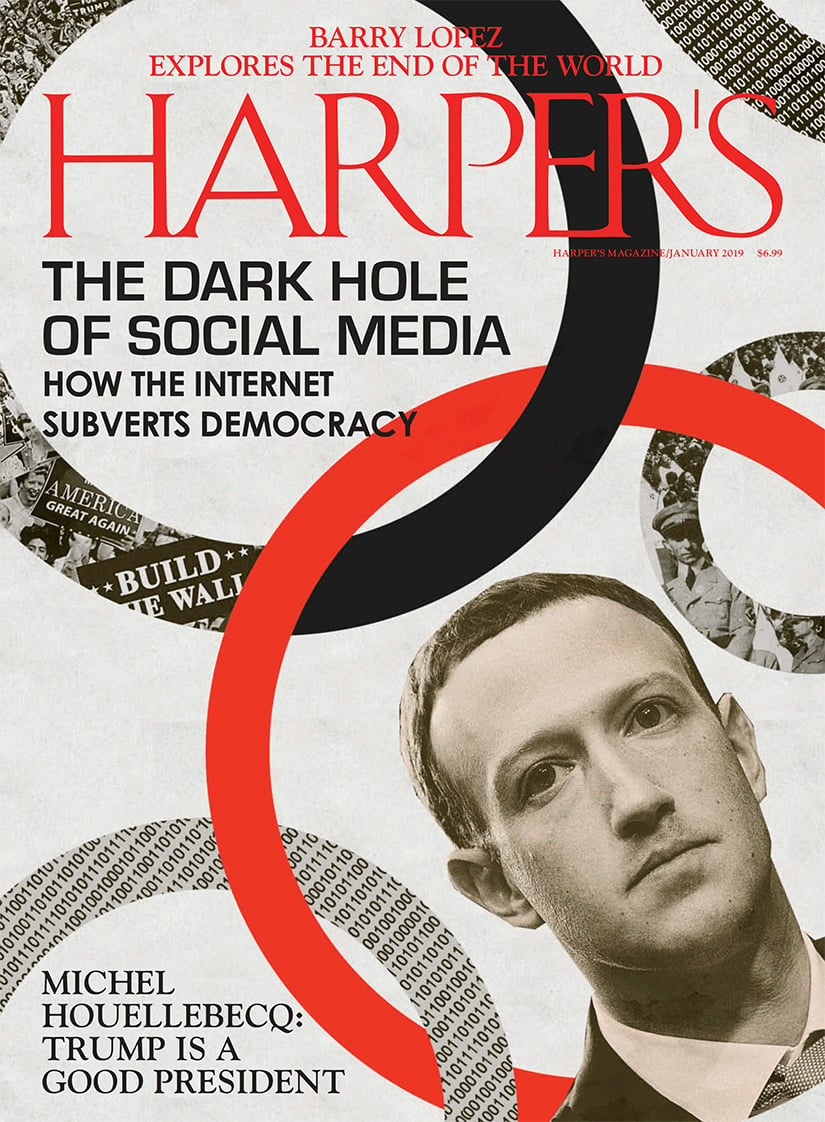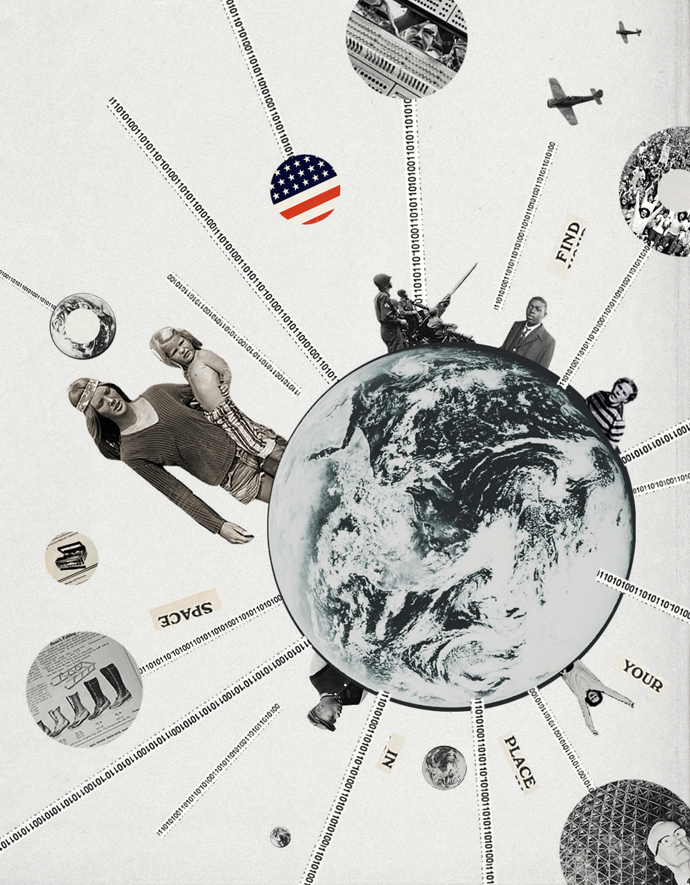General Discussion
Related: Editorials & Other Articles, Issue Forums, Alliance Forums, Region ForumsMachine Politics The rise of the internet and a new age of authoritarianism (Harper's)
(a very interesting, deeply disturbing article about social media's emergence as a tool vastly different from its original intent, and how the crazies are making full use of it)

Machine Politics
The rise of the internet and a new age of authoritarianism
By Prof. Fred Turner
“The Goliath of totalitarianism will be brought down by the David of the microchip,” Ronald Reagan said in 1989. He was speaking to a thousand British notables in London’s historic Guildhall, several months before the fall of the Berlin Wall. Reagan proclaimed that the world was on the precipice of “a new era in human history,” one that would bring “peace and freedom for all.” Communism was crumbling, just as fascism had before it. Liberal democracies would soon encircle the globe, thanks to the innovations of Silicon Valley. “I believe,” he said, “that more than armies, more than diplomacy, more than the best intentions of democratic nations, the communications revolution will be the greatest force for the advancement of human freedom the world has ever seen.”
At the time, most everyone thought Reagan was right. The twentieth century had been dominated by media that delivered the same material to millions of people at the same time—radio and newspapers, movies and television. These were the kinds of one-to-many, top-down mass media that Orwell’s Big Brother had used to stay in power. Now, however, Americans were catching sight of the internet. They believed that it would do what earlier media could not: it would allow people to speak for themselves, directly to one another, around the world. “True personalization is now upon us,” wrote MIT professor Nicholas Negroponte in his 1995 bestseller Being Digital. Corporations, industries, and even whole nations would soon be transformed as centralized authorities were demolished. Hierarchies would dissolve and peer-to-peer collaborations would take their place. “Like a force of nature,” wrote Negroponte, “the digital age cannot be denied or stopped.”
One of the deepest ironies of our current situation is that the modes of communication that enable today’s authoritarians were first dreamed up to defeat them. The same technologies that were meant to level the political playing field have brought troll farms and Russian bots to corrupt our elections. The same platforms of self-expression that we thought would let us empathize with one another and build a more harmonious society have been co-opted by figures such as Milo Yiannopoulos and, for that matter, Donald Trump, to turn white supremacy into a topic of dinner-table conversation. And the same networked methods of organizing that so many thought would bring down malevolent states have not only failed to do so—think of the Arab Spring—but have instead empowered autocrats to more closely monitor protest and dissent.
. . . . .


Over time, as new media have saturated our public lives, and as the children of the 1960s have grown into the elites of today, we have learned that if we want a place on the political stage, we need to make our interior lives outwardly visible. We need to say who we are. We need to confess. When Richard Spencer calls himself a member of a victimized minority, or when Donald Trump bares his anger on Twitter, they are using the same tactics once deployed by the protesters of the 1960s or, for that matter, by participants in the #MeToo movement today. To make this observation is not to say that their causes are in any way equivalent—far from it. But whether they are lying like Trump or revealing long-buried truths like the members of #MeToo, those who would claim power in the public sphere today must speak in a deeply personal idiom. They must display the authentic individuality that members of the Committee for National Morale once thought could be the only bulwark against totalitarianism, abroad and at home. Speaking our truths has always been necessary, but it will never be sufficient to sustain our democracy. It’s time to let go of the fantasy that engineers can do our politics for us, and that all we need to do to change the world is to voice our desires in the public forums they build. For much of the twentieth century, Americans on both the left and right believed that the organs of the state were the enemy and that bureaucracy was totalitarian by definition. Our challenge now is to reinvigorate the institutions they rejected and do the long, hard work of turning the truths of our experience into legislation.
https://harpers.org/archive/2019/01/machine-politics-facebook-political-polarization/